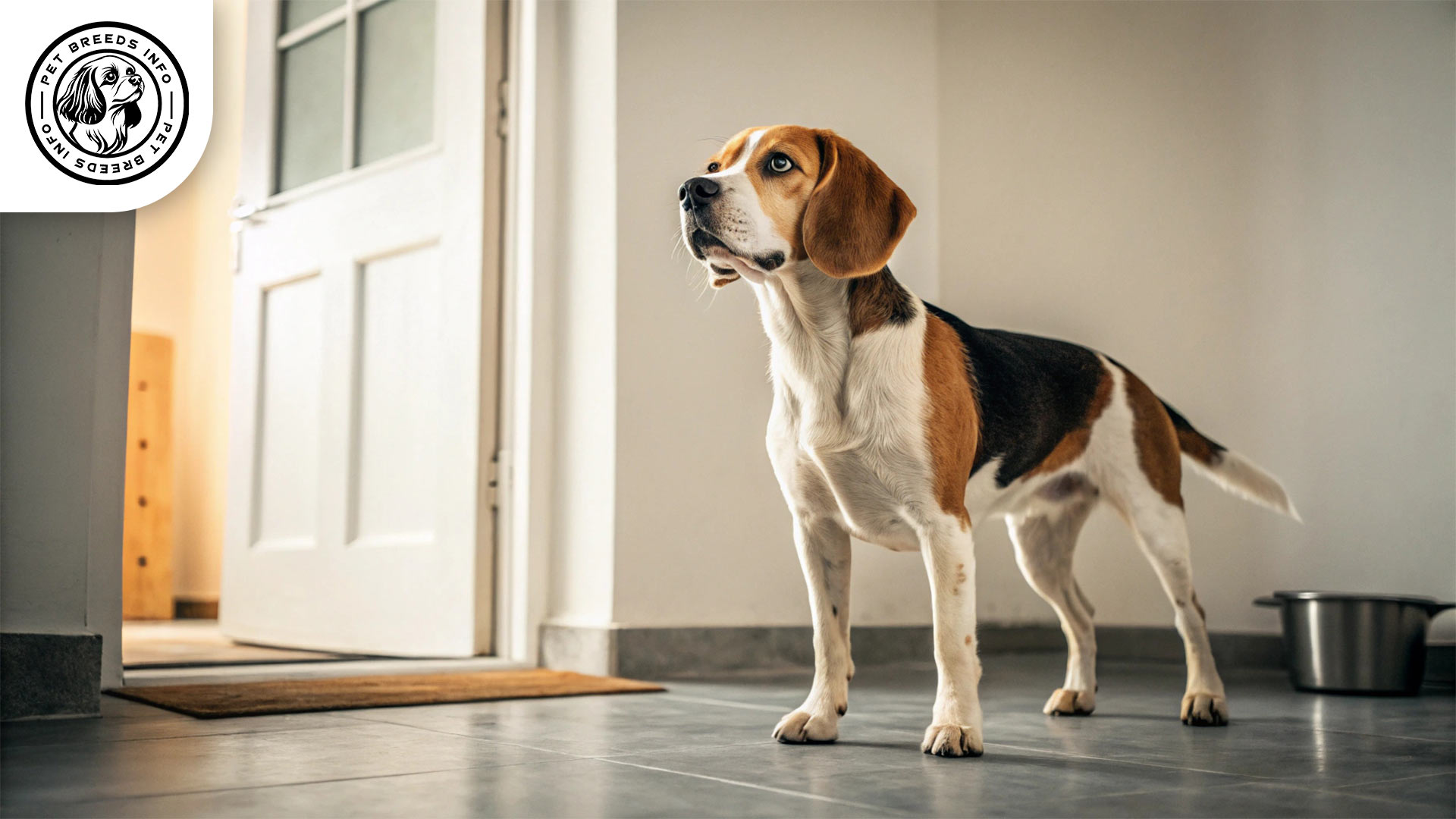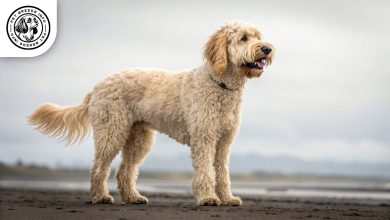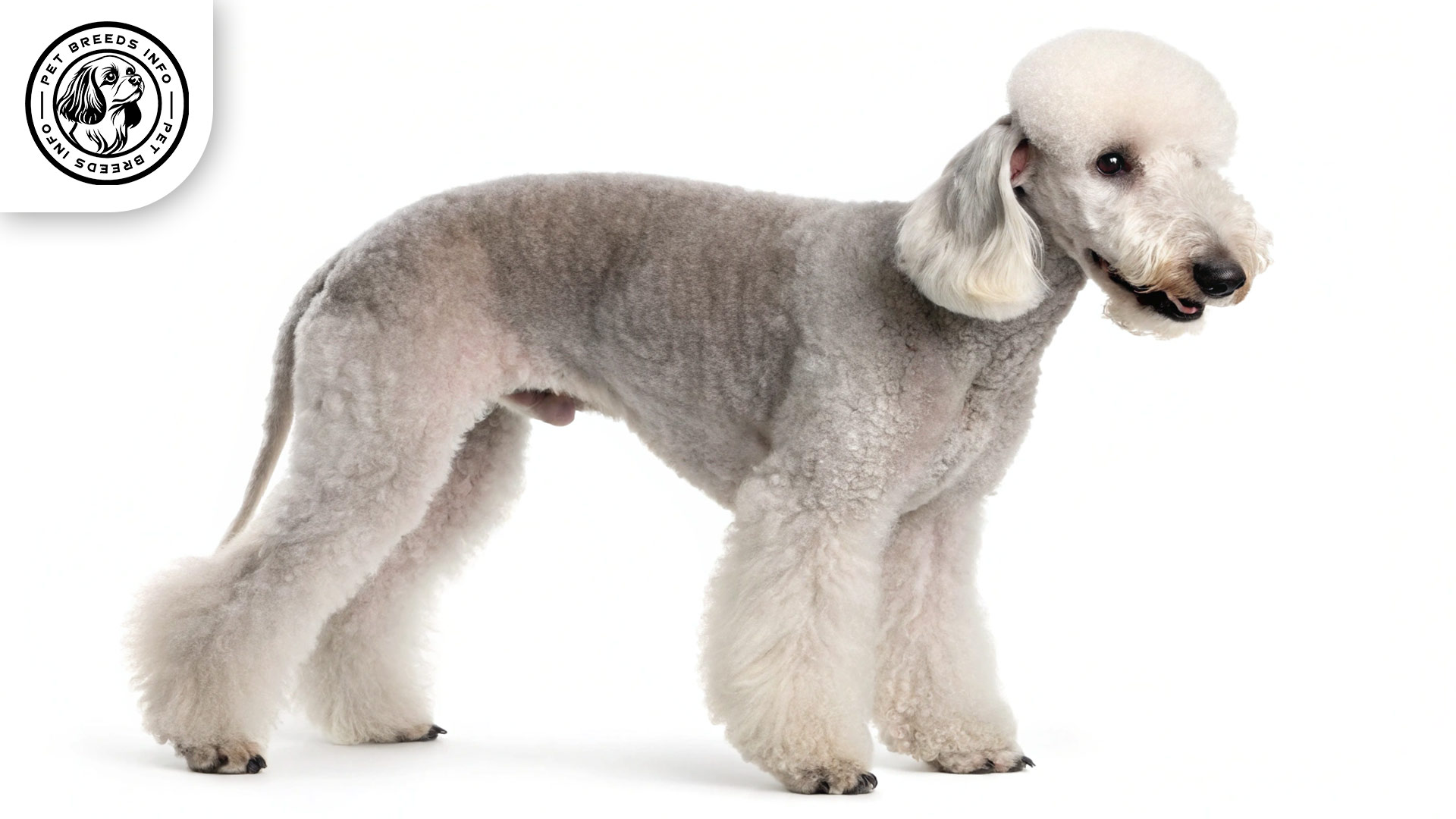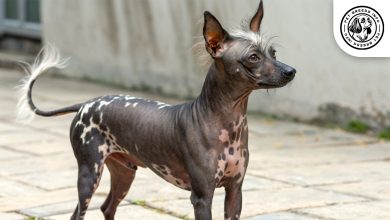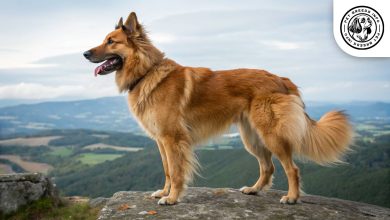Beagle Dog Breed: Size, Health, Price & Personality
General Introduction of the Breed
The Beagle, known as “Beagle” in most languages, is a small to medium-sized dog breed famous for its excellent sense of smell and hunting instincts. It is sometimes referred to as the “English Beagle.”
The breed originates from England and has a long history dating back to the 16th century. Initially bred for hunting hare and small game, Beagles were prized for their strong scenting ability and stamina in the field.
Table of Contents
| Weight | 20-25 lbs |
| Lifespan | 12-15 years |
| Diet | High-quality dry, wet, or raw food |
| Care | Weekly brushing, regular ear cleaning |
| Health | Prone to obesity, hip dysplasia, ear infections |
| Color | Tricolor, lemon & white, red & white |
| Nature | Friendly, energetic, intelligent |
| Price | $400 – $1,500 |
Physical Characteristics
Beagles are classified as small hounds with a compact but muscular build. Males typically stand between 14-16 inches (36-41 cm) and weigh 22-25 pounds (10-11 kg), while females usually range from 13-15 inches (33-38 cm) and weigh 20-23 pounds (9-10 kg).
The coat of a Beagle is short, dense, and smooth, requiring minimal grooming. Common color variations include tricolor (black, white, and brown), lemon and white, red and white, and chocolate tri-color.
They have large, expressive brown or hazel eyes that give them an affectionate and gentle expression.
The ears are long, floppy, and set low, contributing to their keen sense of smell. The tail is medium-length, slightly curved, and usually has a white tip, which serves as a visual cue when hunting.
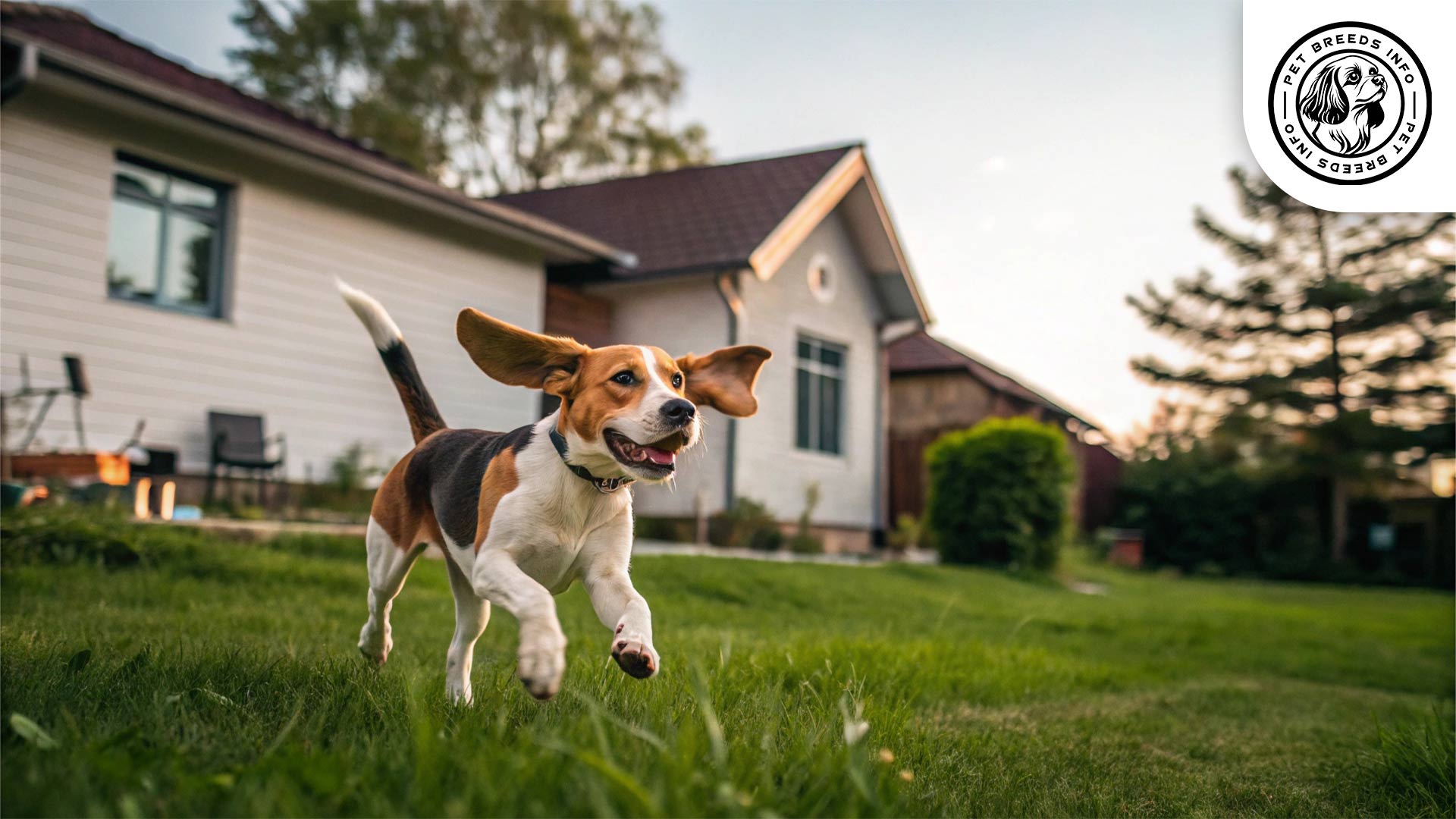
Personality and Temperament
Beagles are intelligent but can be independently minded, making training sometimes challenging. They respond well to positive reinforcement.
They are an active breed with high energy levels, requiring regular exercise and engagement.
Beagles are highly affectionate with their families and develop strong bonds with their owners.
They are friendly and sociable, making them excellent companions for children and other pets.
Due to their scent-driven nature, Beagles have a strong hunting instinct and love to follow interesting scents.
They can be sensitive to loud noises, changes in routine, or being left alone for long periods.
Care and Maintenance Requirements
Beagles need daily exercise, including walks, playtime, and mental stimulation to stay happy and fit.
They can adapt to apartment living but do best in homes with secure yards due to their tendency to wander after scents.
Their short coat requires brushing once or twice a week. They shed moderately throughout the year.
They are generally adaptable to different climates but may need protection in extreme heat or cold.
Regular bathing, nail trimming, and ear cleaning are necessary to maintain hygiene and prevent health issues.
Diet and Nutrition
Beagles do well with high-quality dry kibble, wet food, or a balanced raw diet. Portion control is important, as they tend to overeat.
Read More: Australian Terrier Dog
They have no specific dietary restrictions but should avoid high-fat foods and excessive human treats.
Foods to avoid include chocolate, onions, grapes, and excessively fatty or processed foods.
A balanced diet should consist of two meals per day with portion control based on their age, activity level, and size.

Health and Common Medical Issues
Common health concerns in Beagles include hip dysplasia, epilepsy, ear infections, and intervertebral disc disease.
They are prone to obesity, so a controlled diet and regular exercise are crucial.
The average lifespan of a Beagle ranges from 12-15 years with proper care.
Routine vaccinations, flea and tick prevention, and annual veterinary check-ups are recommended.
Training and Behavior Management
Beagles can be stubborn, but they are trainable with patience and consistency. Early obedience training is essential.
Since they are scent-driven dogs, recall training should start early to prevent them from following smells and wandering off.
Positive reinforcement methods, such as treats and praise, work best for Beagles.
Read More: Australian Kelpie Dog
Socialization from a young age can help them develop balanced behaviors, especially around children and other pets.
Interaction with Other Animals and Humans
Beagles generally get along well with children, making them a great choice for families.
They are friendly with other dogs but may need supervision around small animals due to their hunting background.
They thrive in family environments but also do well with active individuals or couples.
They tend to form strong bonds with owners but can be independent when exploring scents.
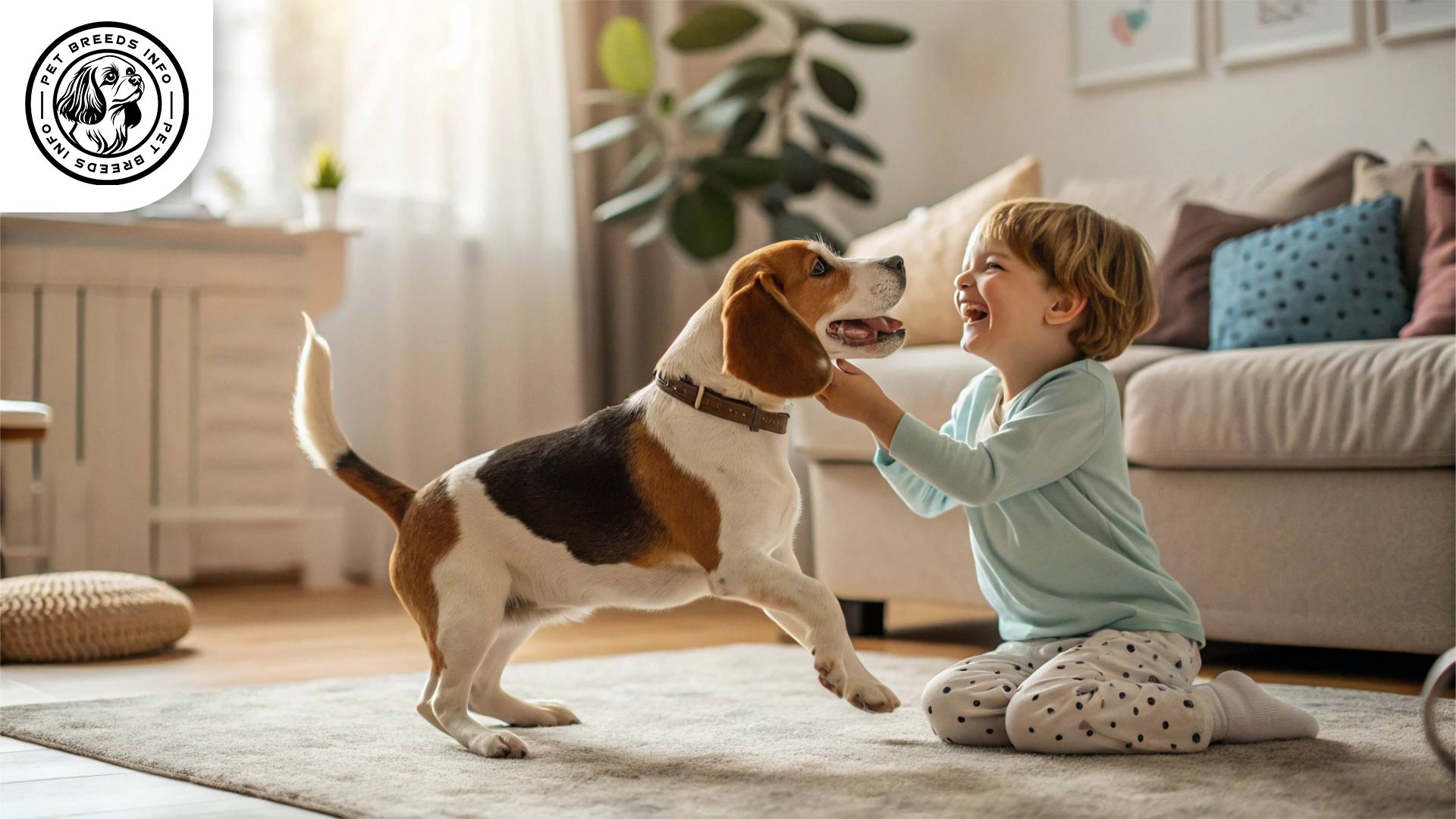
Price and Availability
The cost of a Beagle puppy varies based on breeder reputation, lineage, and location. Prices typically range from $400 to $1,500.
Adopting from shelters or rescue organizations is a great alternative, and adoption fees usually range between $100-$400.
When purchasing from breeders, it is crucial to choose reputable breeders who follow ethical breeding practices.
Conclusion and Final Thoughts
The Beagle is an affectionate, intelligent, and active breed, suitable for families, individuals, and even first-time dog owners.
They thrive in environments where they receive proper exercise, mental stimulation, and companionship.
Prospective owners should consider their high energy levels, training needs, and strong scent-driven instincts before choosing a Beagle.
Read More: Australian Terrier Dog
Overall, Beagles make wonderful companions due to their loyal and friendly nature.
FAQ
Do Beagles get along with other pets?
They are usually friendly with other dogs but may need supervision around small animals due to their hunting instincts.
Are Beagles good with families?
Yes, they are affectionate and playful, making them great companions for families with children.
How much exercise does a Beagle need?
Daily walks and playtime are essential, as they are energetic and scent-driven dogs.
Are Beagles easy to train?
They are intelligent but can be stubborn. Positive reinforcement and consistency work best for training.
